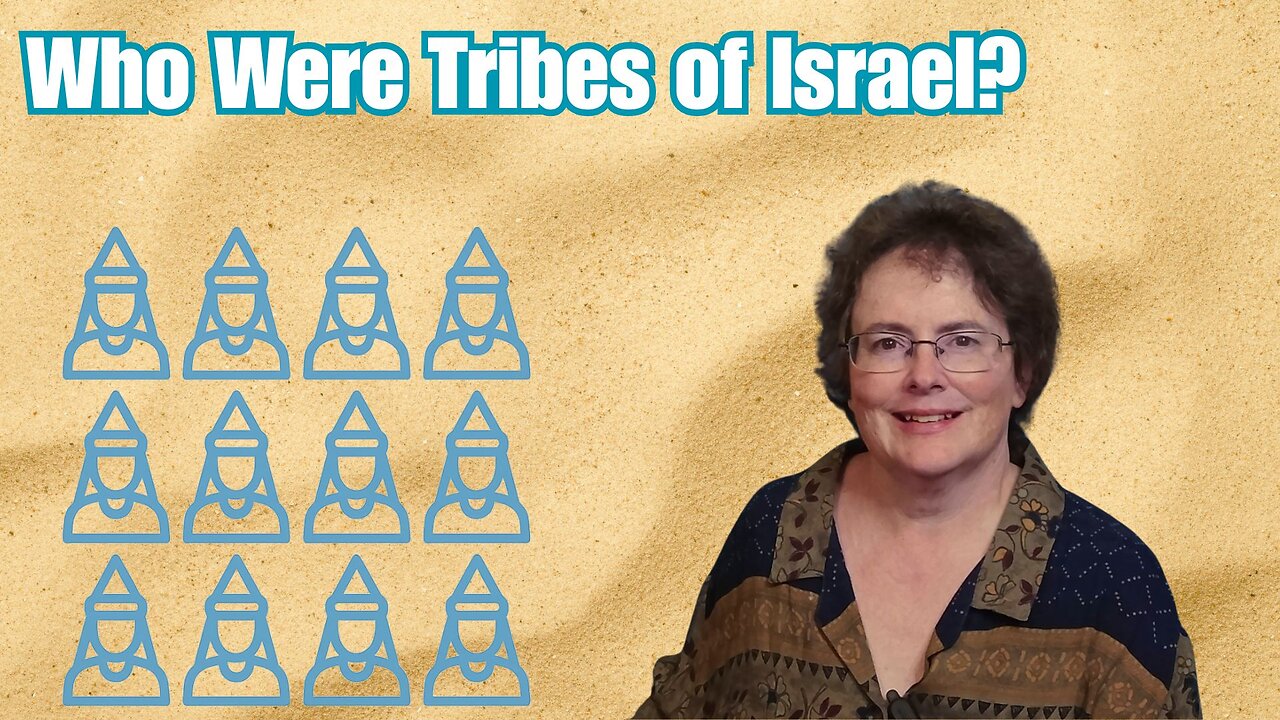Premium Only Content

113 - Tribes of Israel from Jacob to Jesus
In this episode, I explore the fascinating history of the tribes of Israel, tracing their journey from Jacob’s twelve sons to the time of Jesus. We unpack the land divisions, the political splits, the Assyrian and Babylonian exiles, and the enduring mystery of the “Lost Tribes.” Along the way, we see how centuries-old divisions shaped the world Jesus entered—and how His ministry sought to heal them.
Top Topics Covered:
The Origin of the Twelve Tribes
Jacob, renamed Israel, fathered twelve sons who became the heads of Israel’s tribes. Joseph’s two sons, Ephraim and Manasseh, each received their own territory, maintaining twelve land-holding tribes in the Promised Land.
The Division of the Kingdom
After Solomon’s death, the kingdom split into Israel in the north and Judah in the south. This rift laid the groundwork for centuries of tension, vulnerability, and eventual exile.
The Scattering of the Northern Tribes
Assyria’s conquest in 722 BC scattered the northern tribes, giving rise to the mystery of the “Ten Lost Tribes,” with possible descendants in Ethiopia, India, Nigeria, South Africa, Persia, and beyond.
The Samaritans and Deep-Seated Tensions
Those who remained in the north became the Samaritans, keeping their own temple and traditions. By Jesus’ time, distrust between Jews and Samaritans was strong and deeply personal.
Jesus’ Radical Bridge-Building
Jesus defied the norms by traveling through Samaria, speaking to the Samaritan woman, healing a Samaritan leper, and making a Samaritan the hero in His parable. He broke through centuries of hostility to offer unity in God’s kingdom.
Takeaways:
The history of the tribes of Israel is a reminder that division is nothing new—it can be political, cultural, or spiritual, and often stems from long-forgotten conflicts. Jesus’ example teaches us that reconciliation requires intentional action. He crossed barriers that others avoided, choosing connection over separation.
In our own lives, the same principles apply. Differences, if left unchecked, can widen over time, but healing begins when we take that first step toward understanding and unity. The call is to see beyond labels and histories, and to embrace one another as one people under God’s care. Reconciliation isn’t instant—it starts with small, deliberate steps.
Jill’s Links
https://www.buymeacoffee.com/smallstepspod
Twitter - https://twitter.com/schmern
https://www.youtube.com/@smallstepswithgod
Email the podcast at mailto: [email protected]
-
 9:58
9:58
Clintonjaws
12 days ago $0.11 earnedKaroline Leavitt's Response To 'The View' Host's Nasty Attacks Is Perfect
12.2K6 -
 24:23
24:23
World2Briggs
19 hours ago $0.01 earnedTop 10 Towns You Can Retire on $1900 a month in the Pacific North West.
8.56K7 -
 21:23
21:23
Lady Decade
16 hours ago $0.03 earnedThe Lost Sega Neptune Console Refuses To Die !
14.3K3 -
 17:14
17:14
ThinkStory
21 hours agoIT: WELCOME TO DERRY Episode 2 Breakdown, Theories, & Details You Missed!
13.2K -
 17:25
17:25
Real Estate
1 month agoThe Job Market Collapse IS HERE
14.7K7 -
 LIVE
LIVE
BEK TV
23 hours agoTrent Loos in the Morning - 11/05/2025
166 watching -
 LIVE
LIVE
The Bubba Army
22 hours agoUPS PLANE EXPLODES - What Went Wrong? - Bubba the Love Sponge® Show | 11/05/25
1,496 watching -
 16:38
16:38
James Klüg
20 hours agoFOOD STAMPS RAN OUT, Will People Loot?
26K34 -
 23:56
23:56
Producer Michael
19 hours agoBuying My Wife a $500,000 Diamond Necklace!
14.8K11 -
 22:31
22:31
Jasmin Laine
16 hours agoLara Trump SILENCES Liberal Canada—Bank ADMITS We Have NO Other Options
12.7K20